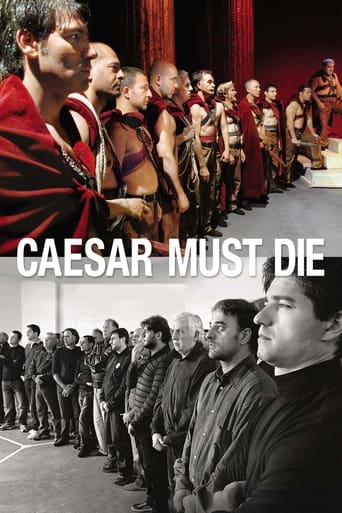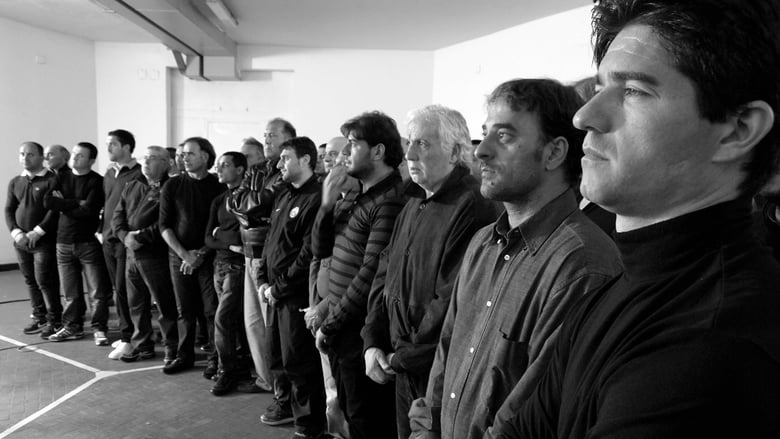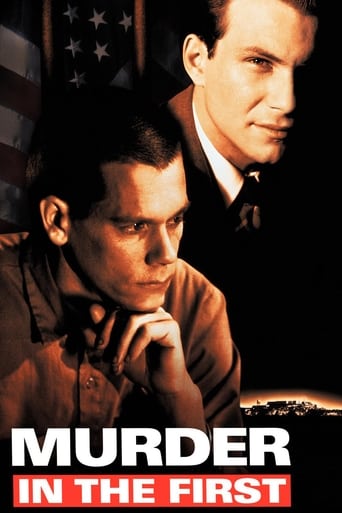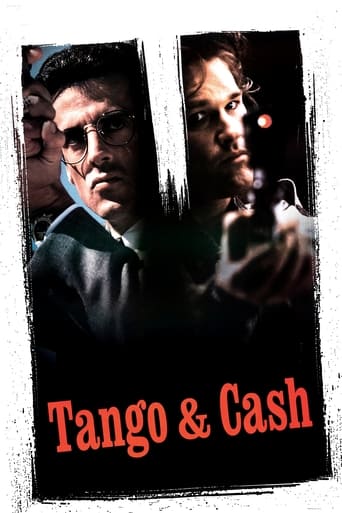

Caesar Must Die (2012)
Inmates at a prison in Rome rehearse for a performance of Shakespeare's Julius Caesar.
Watch Trailer
Cast


Similar titles
Reviews
recommended
If you like to be scared, if you like to laugh, and if you like to learn a thing or two at the movies, this absolutely cannot be missed.
Amazing worth wacthing. So good. Biased but well made with many good points.
Great movie. Not sure what people expected but I found it highly entertaining.
The Taviani brothers' Caesar Must Die (2012) is a very disappointing film for me. The Taviani's had a great concept here, but really failed in the execution of that concept and the resulting finished film is just unconvincing, in my opinion. I had to stop watching this film about half way through because I just couldn't take any more.This film does fit into the genre of Meta-Cinema, but fails to take effective advantage of the creative freedom, and the unique opportunities that this genre affords the filmmaker.The convicts who assume the roles in the Shakespearean play are not at all typical convicts. Reviews of this film reveal that the inmate theater is an established program at Rebibbia Prison and the "casting" of the convicts for the play clearly shows that. These "convict actors" seem to be well worn "retreads" of this inmate theater program, at least in their appearance to me.ALL of the footage in this film is "staged" including not only the actual stage performance of the play, and the "rehearsals" held in various parts of the prison, BUT ALSO even the discussions that the cast members have with each other about the play, AND EVEN their interaction with the civilian director. So there is no "real" convict behavior displayed in this film whatsoever, because it is ALL acting.There is no interaction between the convict actors, and the general prison population, which is a shame because such interaction would have been fruitful to illustrate how the concepts inherent in the play, and the very role of being an actor might have affected the convict actors' interaction with the other prisoners.Overall, I would place this film in my own personal genre of Cinematic Oddity. In fact, this film is such an oddity, so unconvincing, and, ultimately so irrelevant that it isn't even worthy of Cult Film status. At least in my opinion.
The Shakespearean 'All the world's a stage' gets a new meaning with this very interesting and very different film made by the Taviani brother whose actors and heroes are individuals for which the world is the high security prison where many of them are to spend long years paying for serious crimes. Using theater as a mean of therapy end education happens in some of these prisons, now a film not only dares to make this process known and visible outside the perimeter of the prison, but also tries to make of it a work of art. The Golden Bear at the Film Festival in Berlin is a proof that the Taviani brothers succeeded to convince at least the critics and members of the jury. I get the feeling that the larger public was less convinced - it's a very interesting piece of cinema, but not one of these that attracts audiences in numbers. This is not entertainment.In one of the introductory scenes we see a screen test. The actors-to-be are asked to introduce themselves in two situations - a 'soft' family one, and a second which demands them to feel constrained and express rage. Each of them acts with a mix of sincerity and intensity that much exceeds and compensates their lack of professionalism. This is the key of the film. We have already seen theater in theater (Shakespeare himself is the first and maybe greatest master of the genre) and theater about prisons, and many of these were already brought to screen. What we have never seen before is the mix of situations which makes the walls of the prison disappear for the ephemeral moments when the words of the ancient drama become the reality of life for the prisoners acting it.The film asks many questions which arise after the screening ends. Julius Caesar is a play about values - honor, democracy, freedom. How do the prisoners relate to these? The characters of the play are cruel in modern terms, the plot is also about treason and murder - how do these men who have committed serious crimes relate to these deeds? Some of the most interesting moments in the play (and there are only a few of them) are these in which real life (which for the actors is life in prison) interferes in the scenes of the play. I found the smooth, sometimes unobserved, sliding of life in a 21st century prison into the political drama that took place in the first century BC to be terrifying.And then we have the ending. The show is over, it ends in applause and ovations. Then the actors get back to what is their 'home' - the prison where most of them still have to spend many years. What we do understand is that life cannot go on without such a film changing it. The lives of the special actors in this movie, but to some extent the lives of the spectators as well.
"Cesare deve morire" ("Caesar Must Die") is the latest movie from brothers Paolo and Vittorio Taviani, experienced (both over 80 years old) Italian directors and screenwriters. In February 2012 it won the Golden Bear, the main prize of the Berlin International Film Festival, and a very strong reception from the audience which seems to continue. So what's it about? Some time ago a friend told the Taviani brothers about the great experience she had watching a play in a small theatre in Rome and so they went to visit it. They went there, loved the actors, and decided to film them creating another play, Shakespeare's "Julius Caesar". All of that doesn't sound like something special but there's a catch. The theatre is in fact in Rebibbia, a high-security prison, and all of the actors are convicts sentenced for various crimes and to a various amount of time (some even for life). That's the most peculiar but also the most problematic thing about this movie.The movie establishes three levels: one on the scene, the enacting of play, and two in the prison, prisoners as what should be their normal selves talking about the play and in their roles rehearsing for the play. The interesting thing is that on all of the levels the movie feels scripted. The moments of rehearsing are, with the help of camera work, editing and music, made to look like they are parts of play itself, whilst the situations when the prisoners are out of character see them still acting ,thus ironically making the actual play on the stage the only nonfictional part of the movie. As you can imagine, it all leaves you a little confused. Of course, it's questionable if the directors even wanted to create everything in that way. Maybe I'm just reading too much into it. But "Cesare deve morire" obviously tackles the theme of the theater-reality relationship and the fact that it's a movie undeniably adds to the equation.What the Taviani brothers pointed as their main intention in doing this movie is drawing the viewers' attention to the human side of the prisoners, and I'm not sure if they succeeded in that. That they in fact worked with amateur actors didn't help. As I've already said, the prisoners seem to act all the time thus denying us any real emotion and depriving us of any empathy. What we can assume is the usefulness of creating the prison theatre group. Both as a useful way for convicts to spend their time and as means to enable their interaction with the outside world. Bearing that in mind, the movie becomes useful as a sort of advertisement reaching to a broader audience.Being the advertisement of course isn't enough to be a good movie, however good the cause it advertises may be. Fortunately, there are a few more good things about it. Most of the movie is shot in black and white and the cinematography, done by Simone Zampagni, is beautiful. The use of the camera transforms prison cells to Roman houses and makes simple courtyards become the Senate and the grand Forum of the Eternal City. It successfully embodies "less is more" principle. The music composed by Giuliano Taviani and Carmelo Travia in the beginning feels mismatched, but when you recognize the rehearsals as the play and the other levels accordingly it clicks in emphasizing the pathos of the tragedy."Cesare deve morire" isn't a movie without its charms. I just feel like the directors didn't successfully accomplish what they were trying to, even if in the process they created something interesting (deliberately or not). That said, it puzzles me why it got the Golden Bear and I can't wait to see some of the other movies from the competition.More reviews at http://onlineimpressions.blogspot.com/
Six years on from The Lark Farm, Paolo and Vittorio Taviani found in stage productions of the Roman prison inmates Rebibbia energy and the urge to get back behind the camera and make a new film. They wrote and directed and produced within the Roman prison facility and with the same group of actors-prisoners.Only apparently docudrama, but in reality almost entirely representation, Caesar must die tells the staging of "Julius Caesar" by Shakespeare, who are leaving very little overlap between the preparation of the play and the play itself, the express wish to amplify the most painful and intimate adhesion of the detainees to their characters and feelings they carry. The films of the Taviani can undoubtedly convey the strength and passion of surprising interpretations, and is able to find moments of clear staging with a charm that builds on the context, but transcends it. Unfortunately, however, is also weighed down by an idea of cinema out of date and time.The intensity of black and white "Giulio Cesare" acted within the walls of prison, goes limp, in fact, when the Taviani brothers - who, caught between themselves and Bertold Brecht were unwilling or able to give up the script, or embrace moments of pure documentation - they feel heavy and intrusive outside their hand. When they try to break the scene with a background, however artificial and, therefore, artificial. The illusion of reality sought by directors does not take off then ever, and breaks the suspension of disbelief achieved in staging Shakespeare. Worse still surrounds the operation with a sort of condescending paternalism that file the roughness, the personalities, the possibilities.Why show "faking" two prisoners who bicker "really", another unable to take part in the tests because they tried to interview, one imagines the arrival of women in the theater or another that says, reciting, that "by when he met the art cell has become a real prison, "is frankly disturbing and morally objectionable, because it becomes another cage that imprisons artistic protagonists.





